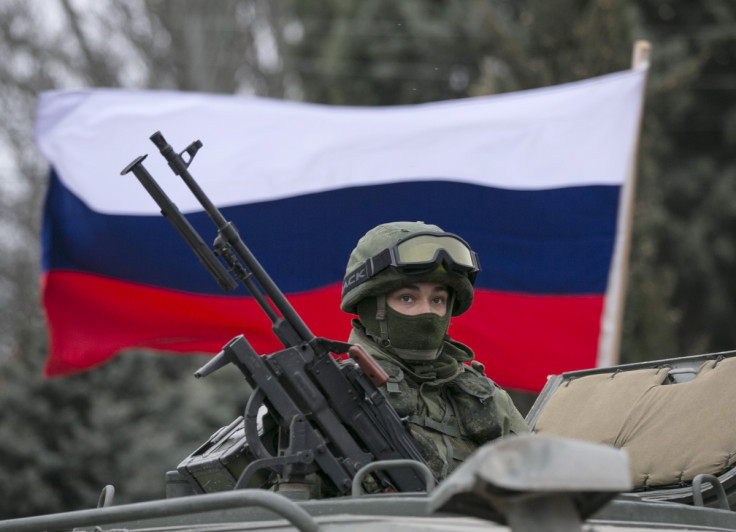Ukraine Crisis: Russia Should Not Face Military Action, Insists Cameron

Amid all the dramatic rhetoric from William Hague about the Ukraine crisis being the greatest to face Europe this century, one fact has been underlined throughout – there will be no military intervention.
That may not be a great surprise, but ministers and Downing Street are keen there should be no doubt about it. The "significant costs" that will be imposed on Russia if it refuses to withdraw will not be military.
The prime minister's spokesman underlined the point, telling journalists at a morning briefing: "The only avenue that is being pursued is a peaceful, diplomatic one. I understand G7 partners have been very clear about that as well."
Having made that clear, the question then is exactly what the UK believes it can do. David Cameron is chairing a meeting of the UN Security Council, pressing for a range of economic and financial sanctions aimed at Russian business in Europe.
He is also seeking an emergency EU summit by the end of this week to formulate a package of measures. His spokesman added: "We and our international partners want to find ways of encouraging political dialogue between both sides".
Culture minister Helen Grant and disabilities minister Mike Penning have already pulled out of a visit to the Paralympic games in Sochi and preparations for the looming G8 summit in Russia have been postponed.
Meanwhile the diplomatic pressure has continued with foreign secretary Hague visiting Kiev in an attempt to kickstart talks between the two countries. He will make a full statement to MPs in the Commons on Tuesday.
However any move to squeeze Russia economically could have consequences for the EU and UK as well, if President Putin decids to use his control of gas supplies as a weapon to retaliate.
Downing Street attempted to play down the possibility, saying: "The industry already has plans in place. There are always possible disruptions in international supplies. There are long-standing measures in place in anticipation of this."
Hague underlined the severity of the crisis, telling the BBC: "It is a very tense and dangerous situation that Russia's intervention has now produced.
"The world cannot just allow this to happen. The world cannot just say it is OK, in effect, to violate the sovereignty of another nation in this way," he said.
However Downing Street refused to back suggestions from senior Tories that Labour leader Ed Miliband's decision not to back military action against Syria last year had "emboldened" Putin and encouraged his actions in Ukraine.
Treasury minister Sajid Javid, a close ally of Chancellor George Osborne, said there was a "direct link between Miliband's cynical vote against [the] Syria motion and Russia's actions on Ukraine".
Tory planning minister Nick Boles said David Cameron "was right to urge Parliament to stand up to Putin and punish Assad's use of chemical weapons," adding: "Look where Miliband's weakness has led us."
Labour was infuriated by the move and pointed out Miliband had not been against any military action, only a delay before any was taken and it was the Prime Minister who had ruled it out.
© Copyright IBTimes 2024. All rights reserved.






